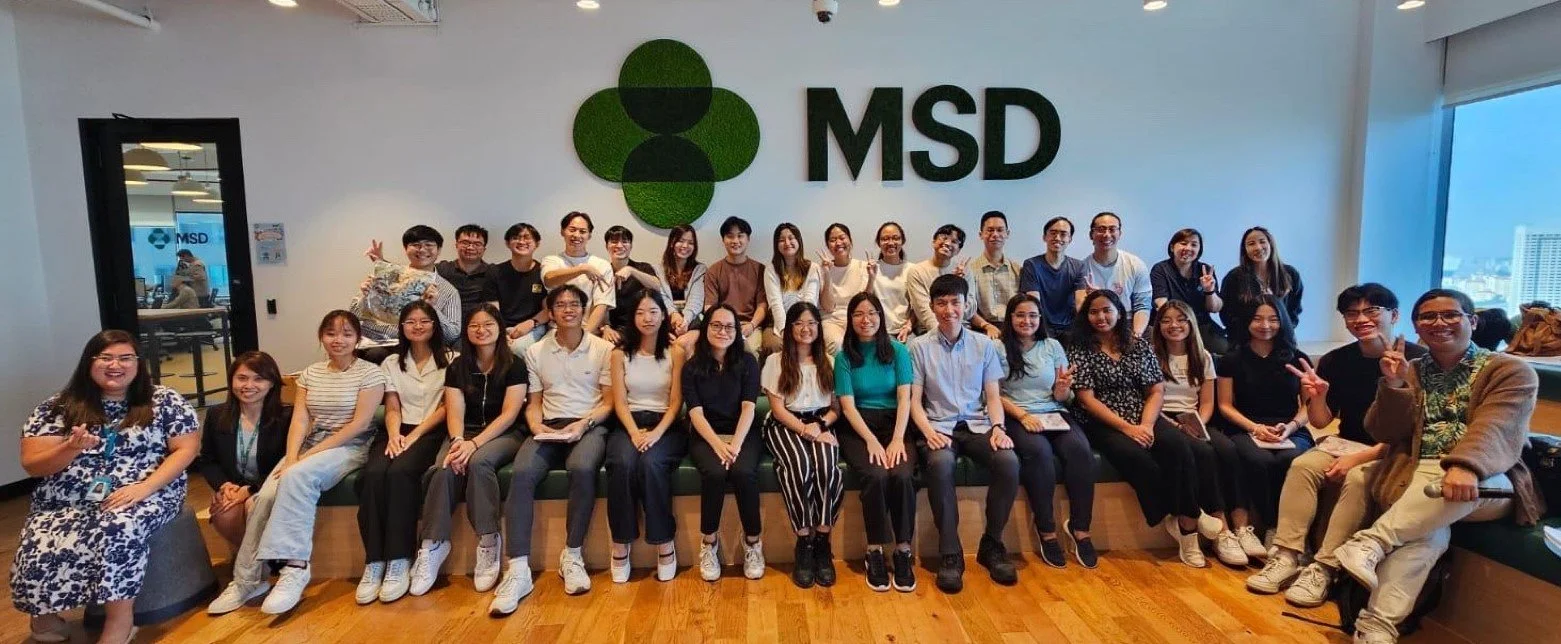NUSPS Beyond - SciGen: From Pharmacy to Industry
Ever heard of the 7 types of Regulatory Affairs officers?
Industry experts from SciGen are here to give us a peek…
Let's talk about Regulatory Affairs (RA). What first comes to mind? You're probably thinking: HSA, product life cycle, quality assurance etc. All these buzzwords that you learnt in your curriculum, but what do they mean, really, in the industry?
At SciGen, there are 7 different kinds of RA officers. NUSPS’ Academic committee has invited two of them to let us peer into the inner workings of their RA office, giving participants a firsthand look at what day-to-day is like as an RA officer to jumpstart their foray into the industry. And that’s not all! The sharing was jam-packed with content, including the possibilities RA entails, common challenges to flair up your interview answers and an unspoken bonus from this line of work.
3 key strategies to increase your chances of getting into RA
The session started with a rundown of the recommended pathway a pharmacist student like yourself should take if you are considering a possible career in RA. The speakers emphasised how there was no hard and fast way to get into RA. The speakers started their careers with little to no knowledge as to how things at SciGen run. Most of what they know now was picked up on the job. That said, although there is no explicit work experience one needs as a student to get started, a general direction towards industry would without a doubt increase your chances. Here are some moves one can take:
PECT industry internships and insider info from your preceptors can be hidden in plain sight, so take full advantage of them.
It would be a grave mistake to overlook the power of connections.
Let your clinical expertise allow you to stand out.
CMC, PI, RO, PL. PAS…here’s what the alphabet soup mean:
The main bulk of the session showcased the various roles of an RA officer. They can be broadly categorised into 7 roles:
Chemistry Manufacturing Controls
Plant
Policy and Intelligence
Regulatory Operations
Product Lifecycle
Commercial
Post-approval support
Without delving too much into each role, tldr is that all 7 work together to act as middlemen to bridge the gap between pharmaceutical companies and health authorities. That way, new drugs can be approved for public use safely and efficiently.
“I was surprised at the similarities between RA and lawfirms, requiring them to understand the rules and limitations well.” -Chi Rui, participant
It’s a good career…right?
But therein lies one of the many challenges RA officers face. Let’s face it, no profession will be butterflies and roses all the time. More often than not, a single RA personnel plays more than one of these roles. Naturally, it’s demanding to be expected to be capable of so much solo and working well with other departments. As much as RA can be rewarding, the challenges are an inseparable part of the job. Participants were lucky enough to hear of these challenges, for them to make better informed career decisions.
Other problems easily surface in RA, including managing multiple stakeholders and having to face the strict standards authorities. To add fuel to the fire, these standards are different according to region and constantly being updated. Of course, this is for the betterment of public safety.
At the same time, these challenges are what make the job rewarding. The speakers have mentioned one of the biggest reasons they picked RA was that it enabled them to make a broader impact on patients compared to a clinical role. It’s also dynamic and ever-changing. Work never truly stays mundane for long. Another unsaid bonus RA officers get to enjoy is many experiences with other cultures including overseas trips! It comes as a side-effect of having to work closely with overseas pharmaceutical companies.
The sharing closed with an insightful Q&A session where participants got their burning questions addressed. This is where the speakers were able to dive deep into aspects of RA not very well known to the public. Personal anecdotes were shared and insider information was revealed. The speakers were asked about the challenges they faced as an entry-level RA, how they transitioned from a clinical role, and how they overcame the challenges they faced. I’m sure attendees would be able to use their experiences to manage their challenges in RA if the time comes.
All in all, participants who were interested in RA and industry gained insights that would prove useful in their prospective RA career. It gave them the knowledge to chart their path into the RA industry, perhaps some of them have even started to walk on that path. If you’d like to get a clearer idea of the industry, save yourself the trouble of looking deep into specific fields, and tune in! The academic committee organises sharings like these regularly.
Don’t wanna miss out on NUSPS happenings?
The latest Pharmily updates, sent straight to your email.





